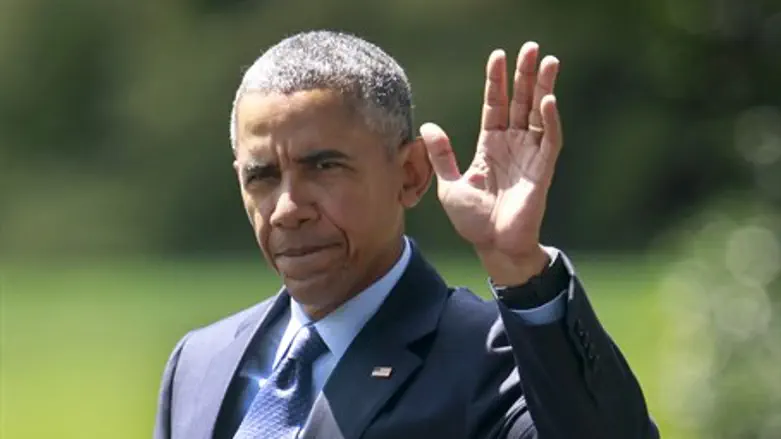
In an unusually long statement, the Conference of Presidents of Major American Jewish Organizations calls for unity for the "day after," essentially conceding in the fight against the Obama-Iran nuclear deal.
In light of the news that President Barack Obama has succeeded in garnering sufficient Senate votes ensuring that the nuclear deal with Iran is not defeated, for now, the opponents of the deal are attempting to regroup and reorganize their efforts.
The Conference of Presidents represents 53 American-Jewish organizations to the US Administration and Congress. In its latest statement, no fewer than 19 paragraphs long, it warns that although "the ultimate outcome of the process is known," we must now "be looking for the most productive engagement to enable all to come together on 'the day after'. We must emerge stronger and in a better position to ensure that the nefarious goals of the Iranian regime be challenged effectively and determinately."
The statement notes that of its member organizations, only five support the deal with Iran – while 29 (55%) oppose it outright, and the others either expressed concern with the agreement and/or did not wish to take a formal position for a variety of reasons.
In a veiled slap at Obama, the Conference stated, "Throughout these discussions and activities ... we sought to prevent the debate from becoming personal, politicized, or uncivil... [T]here were comments by advocates on both sides of the issue that were unacceptable. We know that words bear consequences and especially when they target individuals or groups in our society. It is entirely appropriate for Americans to petition their government and elected officials, especially about an issue of such great consequence. It is in keeping with what American democracy demands of its citizens."
"We must continue to educate and alert the American people and the world to the dangers posed by Iran," the Conference writes, " and especially an emboldened Iran. We are in the process of developing suggestions to be presented to the Administration and Congress after consultation with both, and with experts, officials, and our members. The 'day after' engagement will again require our energies, long-term commitments, and above all, our unity."
The Conference insists that the Iranian nuclear drive is not an essentially Jewish or Israeli issue: "It is a potent danger to the world, to the vital interests and security of the US, and is a threat that will further destabilize the already tumultuous situation in the Middle East and provide new opportunities for Iranian intimidation and exploitation."
It further emphasizes that "there is a shared goal not only amongst all of our member organizations, the larger community, the Administration, Congress, our allies, but even some non-allies, that Iran not be allowed to secure or have the ability to produce nuclear weapons."
"At times, the sharpest criticisms came from those who expressed support for the agreement," the Conference states.
The statement lists several signs indicating that Iran's intentions are not peaceful: "The calls for death to America still echo at Friday prayers, sometimes led by Khameini himself... The deep concern, fear and frustration we have heard directly from Arab leaders... bears witness to Iran’s efforts to infiltrate, undermine, and eliminate governments in the region, to create a Caliphate... The calls to violence, threats against the US and its allies, the calls to annihilate a member state of the UN, training exercises that involve bombing a mock-up of the USS NIMITZ, seizing a ship under American protection in international waters, providing funding and weapons to terrorists in blatant violation of UN Security Council Resolutions..."
The above "are met too often with little if any reaction," the Conference of Presidents statement avers. "It is essential that the Iranian government understand, and believe, the determination of the United States and our allies to use 'all means' to assure full Iranian compliance and cooperation... Iran must never be allowed to have nuclear weapons and the means to deliver them. The consequences of any other outcome are unthinkable."
